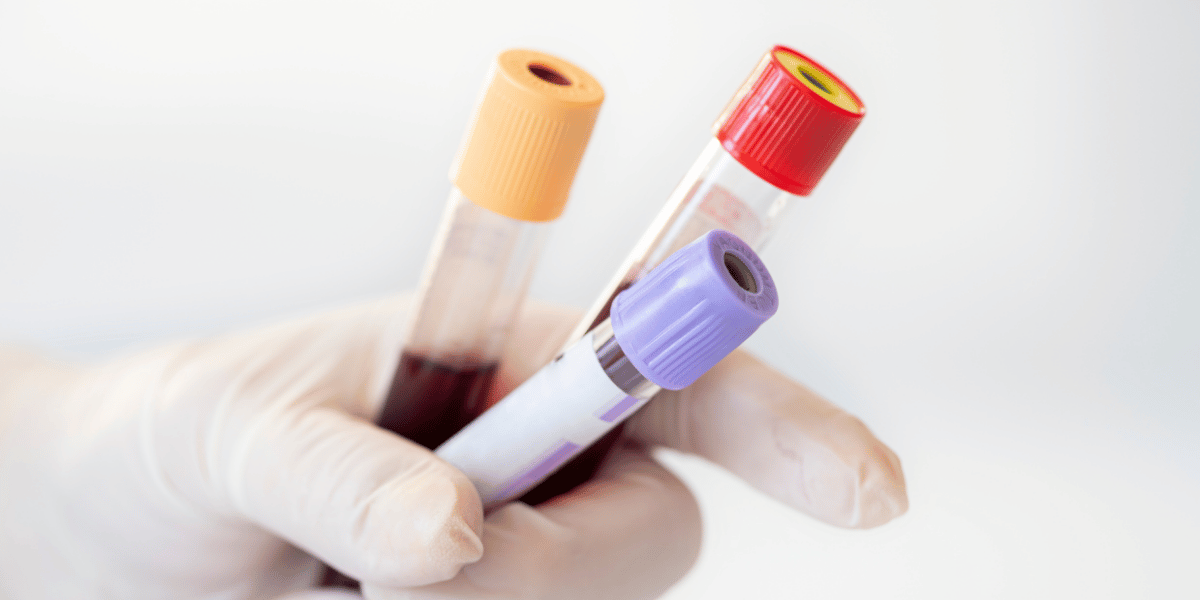The Power of Micronutrient Testing: A Deep Dive into Your Health
Micronutrients play a crucial role in our overall health, yet their importance is often overlooked. From boosting immune function to supporting ...

Vitamin D often flies under the radar when we talk about essential nutrients, but this sunshine vitamin plays a vital role in keeping your body functioning properly. Yet, most of us don’t even know our current levels. If it’s been a while—or maybe never—since you last checked your vitamin D levels, now is the time to consider it.
With the rise in indoor lifestyles, vitamin D deficiencies are becoming increasingly common. Micronutrient testing can quickly assess whether your body is getting enough. So, when was the last time you had your levels checked?
Vitamin D is a fat-soluble vitamin that plays several critical roles in the body. One of its main functions is to facilitate the absorption of calcium and phosphorus, which are essential for maintaining healthy bones. But vitamin D is far more than a bone booster—it also supports immune function, regulates mood, and can even help prevent chronic illnesses such as heart disease and certain cancers.
Without enough vitamin D, your body struggles to maintain balance, leading to potential health issues like brittle bones, fatigue, and even increased vulnerability to infections. This vitamin is so essential that every cell in your body has a receptor for it, meaning that its influence extends far beyond just bones and teeth.
Vitamin deficiencies often go unnoticed until they start to show more serious symptoms. So, how do you know if you’re at risk for a vitamin D deficiency? Several factors can contribute to low levels, including living in areas with limited sunlight, having a darker skin tone (which makes it harder to produce vitamin D from sun exposure), and spending too much time indoors.
Additionally, age and diet play a role. As you get older, your skin becomes less efficient at synthesizing vitamin D. If your diet lacks foods rich in this nutrient—like fatty fish, fortified milk, or egg yolks—you’re more likely to be deficient. Regular micronutrient testing, including in-house labs, can give you a clear picture of whether your vitamin levels are adequate.
Vitamin D deficiency can manifest in subtle ways at first—think fatigue, muscle weakness, or frequent colds. However, untreated, it can contribute to more severe problems like osteoporosis or depression. This is why it’s crucial to know where your levels stand before these issues arise.
If you discover that your vitamin D levels are low, treatment is essential to restore balance. The good news? There are many ways to boost your levels, including dietary changes, supplements, and even injection therapy. One of the most efficient ways to correct a deficiency is through injection therapy. Injection treatments offer highly effective delivery and absorption, ensuring a fast and concentrated dose of vitamin D without relying on the digestive system.
For many people, supplements alone can take weeks or months to restore proper levels. Injection therapy, on the other hand, works more quickly, providing a boost that can help you feel better sooner. If you’ve been struggling with the symptoms of a deficiency, injection therapy may offer quicker relief compared to traditional methods.
Knowing is half the battle, and regular lab work can give you the knowledge you need to maintain optimal health. In-house labs allow for convenient and quick micronutrient testing, including vitamin D. But how often should you check your levels? It depends on several factors, including your age, lifestyle, and health history. Some individuals may need testing every few months, while others might only require it annually.
Testing not only confirms deficiencies but also helps guide a course of action. It’s one thing to know you’re deficient; it’s another to understand the extent of the problem.
Vitamin D is more than just a nutrient—it’s a key player in your overall health and well-being. Regular testing can help ensure that you’re not unknowingly suffering from a deficiency, and the good news is that Drip IV now offers in-house lab testing for vitamin D levels. We’re here to help you take control of your health by offering personalized treatment plans, including injection therapy to quickly correct deficiencies.
So, when was the last time you checked your vitamin D levels? Make an appointment today to find out where you stand, and let us help you get back on the path to optimal health.
Disclaimer: The information provided in this blog regarding the potential benefits of micronutrients is for informational purposes only. While micronutrients may offer various health benefits, we do not make any claims or guarantees regarding the effectiveness of these nutrients for specific health conditions. Micronutrients should not be considered a treatment for any illness or medical condition. Our goal is to offer supportive therapy to the body, and we recommend consulting with a qualified healthcare professional before making any changes to your diet or supplement routine. Drip IV is a leader in the delivery of intravenous micronutrient therapies servicing both Lafayette and Baton Rouge, Louisiana. As a drip infusion bar, we provide Semaglutide and Tirzepatide for weight loss, NAD+, and IV nutrition therapies for Energy, Hydration, Immunity, Performance & Recovery, which may benefit COVID-19 and Long COVID symptoms and recovery. Our Baton Rouge location is proud to offer Stem Cells and aesthetic services like BOTOX, Dysport, Xeomin, and Lip Fillers.
Drip IV is a leader in the delivery of intravenous micronutrient therapies servicing both Lafayette and Baton Rouge, Louisiana. As a drip infusion bar, we provide Semaglutide and Tirzepatide for weight loss, NAD+, and IV nutrition therapies for Energy, Hydration, Immunity, Performance & Recovery, which may benefit COVID-19 and Long COVID symptoms and recovery. Our Baton Rouge location is proud to offer Stem Cells and aesthetic services like BOTOX, Dysport, Xeomin, and Lip Fillers.
Lafayette: 4906 Ambassador Caffery Pkwy, Bldg. B, Lafayette, LA 70508
Baton Rouge: 7731 Perkins Rd STE 135, Baton Rouge, LA 70810

Micronutrients play a crucial role in our overall health, yet their importance is often overlooked. From boosting immune function to supporting ...

With all the panic around COVID-19 and most of the population directing their attention towards social distancing, washing their hands, and wearing...

Most people strive to maintain a healthy lifestyle by eating well, staying active, and taking care of their bodies. However, even with the best...